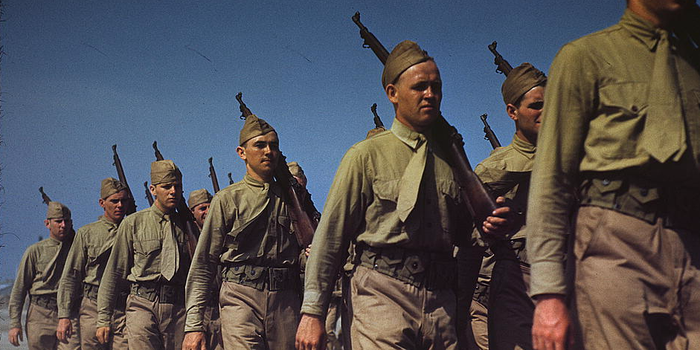
Events of WWII
Modern History (Year 12) - World War II
Ben Whitten
Events of World War II
World War II, which lasted from 1939 to 1945, was a global conflict that involved many countries, including Soviet Russia. Here are some of the key events of World War II with a focus on Soviet Russia:
German-Soviet Non-Aggression Pact (August 23, 1939): The German-Soviet Non-Aggression Pact was signed between Germany and Soviet Russia, agreeing to divide Eastern Europe into spheres of influence. This allowed Hitler to invade Poland without fear of Soviet intervention.
Soviet Invasion of Poland (September 17, 1939): Following the German invasion of Poland, Soviet forces invaded eastern Poland to claim their share of the territory.
Winter War (November 30, 1939 - March 13, 1940): The Winter War was fought between the Soviet Union and Finland. Despite superior numbers, the Soviet Union suffered heavy losses and the conflict ended in a stalemate.
German Invasion of the Soviet Union (June 22, 1941): Operation Barbarossa was launched by Nazi Germany, which invaded the Soviet Union in a surprise attack. The German army quickly advanced into Soviet territory, taking control of large areas of land.
Battle of Stalingrad (August 23, 1942 - February 2, 1943): The Battle of Stalingrad was a turning point in the war, as Soviet forces were able to halt the German advance and launch a counteroffensive that drove the Germans back. The battle was brutal and lasted for months, but it resulted in a decisive victory for the Soviet Union.
Siege of Leningrad (September 8, 1941 - January 27, 1944): The Siege of Leningrad was one of the longest and deadliest sieges in history. German forces surrounded the city and cut off its supply lines, resulting in widespread famine and death.
Battle of Kursk (July 5, 1943 - July 23, 1943): The Battle of Kursk was the largest tank battle in history and was fought between German and Soviet forces. The Soviet Union was able to repel the German offensive, marking another turning point in the war.
Soviet Capture of Berlin (April 16, 1945 - May 2, 1945): Soviet forces captured Berlin, which was the capital of Nazi Germany, after a brutal battle. The capture of Berlin marked the end of World War II in Europe.
Overall, Soviet Russia played a crucial role in World War II and suffered immense losses, but ultimately emerged victorious, thanks to the bravery and sacrifice of its soldiers and civilians.